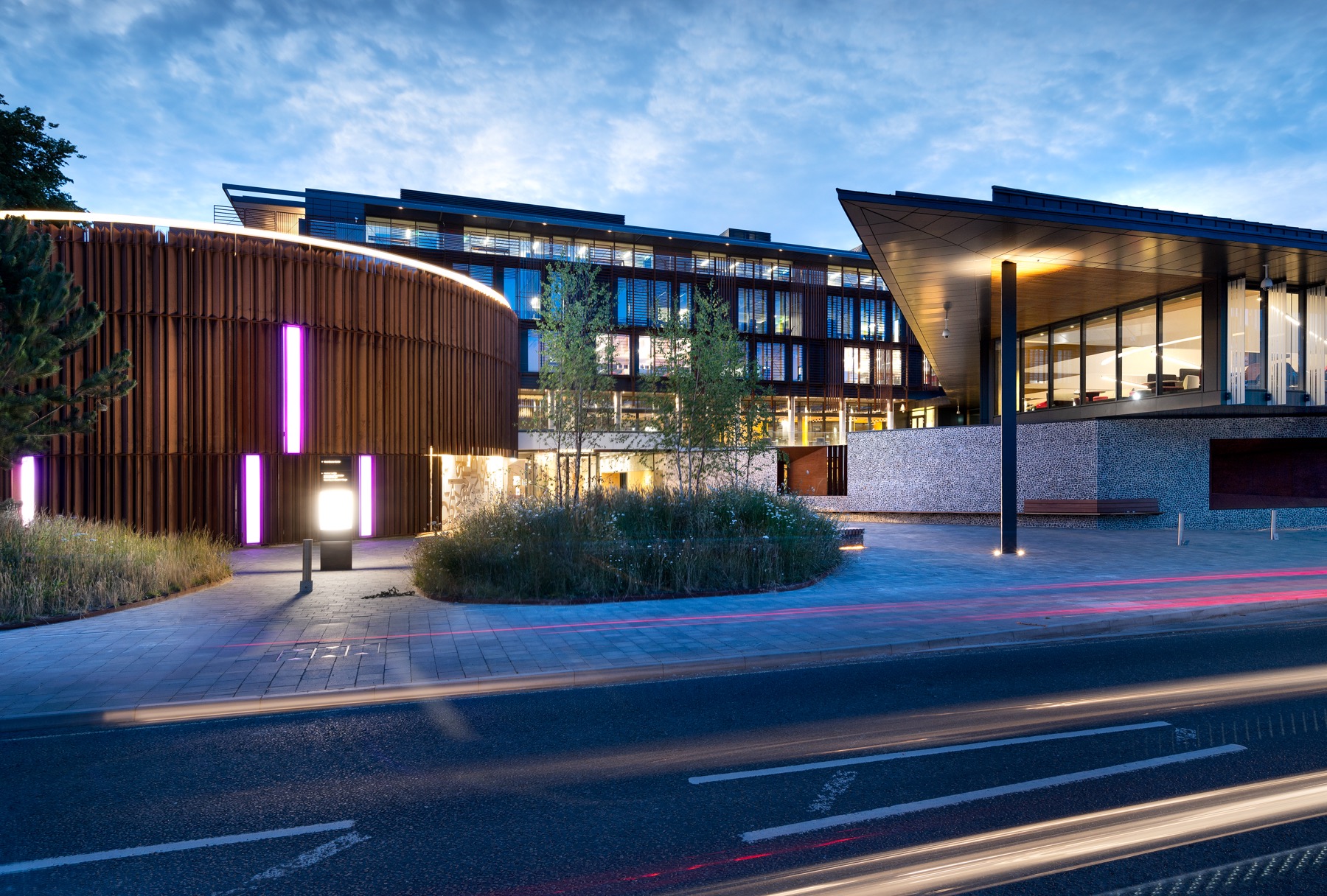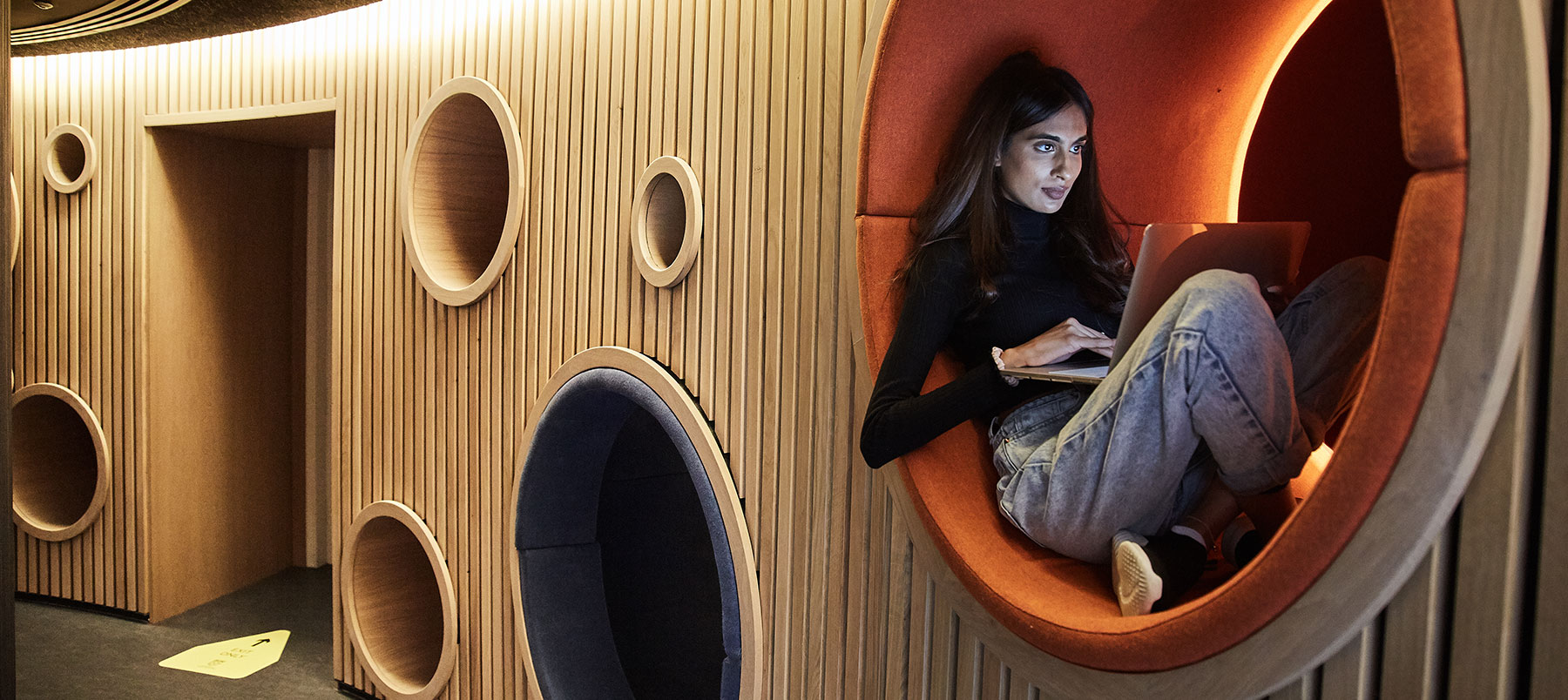School vs Uni: How different are they?

Whatever you’re currently studying at school or college, you might already be thinking about what to expect from university. From the way you study to the way you live and spend your free time, it's going to be a new and exciting experience. This blog is a quick heads up of what’s to come if you think that studying at university is for you.
Accommodation options
Right now, you’re probably used to your regular home route, maybe you’ve got a set schedule of chores or occasionally cook the dinner. One of the biggest differences between school and university is that you have the option to live away from home. At Winchester, there’s a choice of catered or self-catered accommodation on campus and various choices off campus.
If you do live away from home, you’ll be responsible for cleaning your own room and working with your flatmates to keep the communal spaces tidy and pleasant. And if you choose self-catered accommodation, the most useful piece of knowledge you can have before you move in is how to cook so it's worth spending some time in the kitchen over the summer before you arrive.
If you will be commuting to Winchester, as many students do, you can get access to your campus home-from-home, the Commuters Lounge by joining the Commuting Students Network for a nominal fee.
Getting around campus
Your school or college is probably quite small compared to university. Some universities have multiple campuses where you need to take public transport to travel between sites. At Winchester, students love that there’s just a 10-minute walk between the King Alfred Quarter and the West Downs Quarter, and it’s just a short walk into the city centre too. On campus facilities include the gym, fitness studio, libraries and multimedia suites, as well as dedicated subject-related facilities.
Part-time jobs
Don’t fall into the trap of thinking that you can only get involved in university life through sports clubs. In addition to various sports clubs, there are a range of societies and networks for you to take part in. Winchester Students' Union also host events and activities throughout the year for everyone to participate in, whether you drink alcohol or not. Further opportunities at uni include the option of Study Abroad or getting a work placement as part of your course, both of which are brilliant for your CV.
Another big difference is managing your finances. This can be a daunting aspect of this phase of your life but there is lots of support available through loans, bursaries and scholarships to help you cover your living expenses. You may want to get a part-time job for some extra income. There are lots of jobs available on campus, whether that’s in the Students' Union, in the cafes on campus or working as a Student Ambassador. Off campus, there are plenty of hospitality and retail roles available in Winchester and the Careers Team can help you to find a role. They are advertised on the CareerConnect portal.
Balancing studies and social life
Now you’re juggling work, enjoying your social life and your studies! Here’s an important difference – the way you learn and the various teaching methods you’ll encounter will be different to college. At Winchester, you could have a lecture in a theatre that may be filled with 100 students and one lecturer explaining an aspect of the module; a seminar with a smaller number of students where you can chat to your lecturer and coursemates and ask any questions you might have; or a tutorial with a group even smaller than a seminar, often involving one-on-one discussions.
You also get more choice – most courses let you choose optional modules that interest you from Year 2, and you will choose the title and content of any final year dissertation or project – allowing you to tailor your degree to your own interests. Don’t think your skills are suited to writing essays? Many courses offer different types of assessments such as coursework, group projects, presentations and even, for courses in the Faculty of Business and Digital Technologies, launching a start-up, so you can be graded on work that reflects all of your potential.
Another big difference is time management. During your degree, you won’t have a full timetable of lessons 9am-3pm Monday to Friday like you had at school. You may have one or two lectures at any point between 9am and 5.30pm one day, and the next day no scheduled classes. Depending on the course you take, you’ll most likely be expected to do your own independent study during this time, whether it’s completing assignments or reviewing lectures and seminars. If you have a day full of lectures/seminars/society meetings, spend the next ‘free’ day catching up on your assignments, working an extra shift at your part-time job or catching up with friends.

Independent and responsible
Once you have enrolled and started at Winchester, your possibilities are endless, but do make an effort to keep on top of your schedule. Remember the discipline and perseverance you needed when you were revising for your exams? You’ll be needing those attributes for the duration of your degree. If you start the habit early, it will be no problem to continue through the rest of your course. It’s your responsibility to get to your lectures and seminars on time, and to submit your assignments by the due date. Your coursemates, lecturers and tutors will be able to help you along the way whether that’s a research session in the library or a 1:1 session with your tutor or a member of the Academic Success Team.
These are some of the big differences between college and university. It will be a big (and exciting!) next stage of your life and Winchester will be there to support you. If you have any questions about life at Winchester then please contact us via Live Chat using the pop-up ‘ask’ button on our website.
Back to blog

